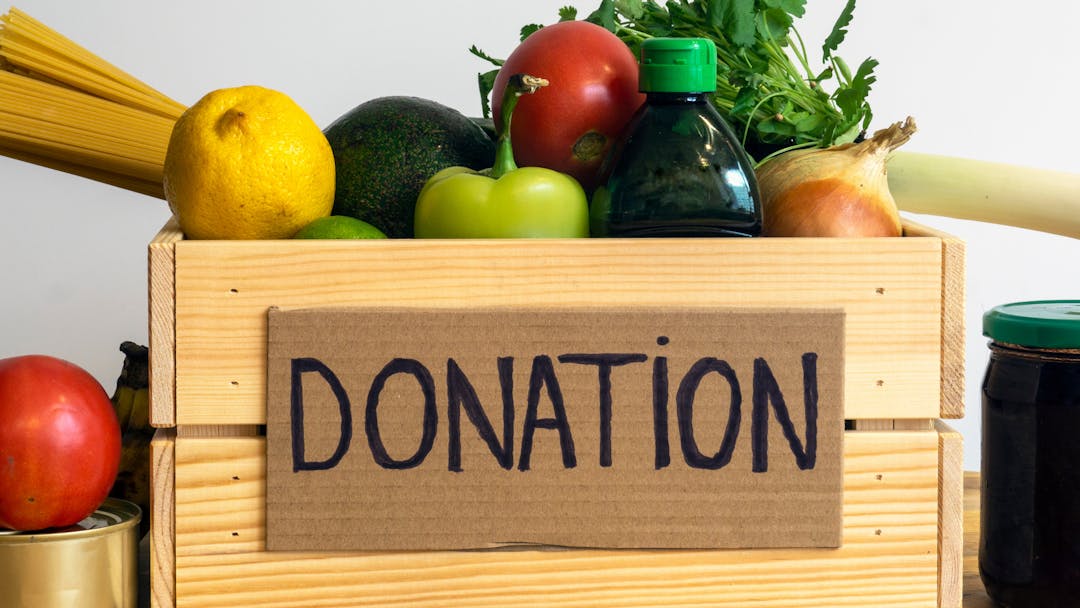Edible Food Recovery Program

Overview
To help reduce methane emissions, a new state law, SB 1383, requires the state to reduce organic materials disposed in landfills by 75% by 2025. In response, the City has implemented its Organics Recycling Program with EDCO to divert these valuable materials away from landfills and toward the production of value-added products such as compost, fertilizers and biofuels.
In addition, SB 1383 requires cities and businesses to take direct action in addressing food insecurity. The regulation requires select businesses to start food recovery programs whereby edible food is donated for human consumption rather than sent to the landfill.
Food recovery, also known as food donation, is the act of saving edible surplus food and providing it to local nonprofit organizations, such as food pantries, soup kitchens and food banks.
Why Food Recovery?
An estimated 1 in 3 San Diegans are food insecure, which means they have little to no food at home and do not know how they will get their next meal. Meanwhile, the San Diego region wastes 500,000 tons of food every year. About 25% of the total food wasted is potentially edible and is equivalent to nearly 210 million meals that could be served.
Feeding people is one of the best ways to reduce food waste while directly benefiting communities in need. Businesses are protected from liability through the federal Food Donation Act of 2017 and Good Samaritan Food Donation Act, as well as the California Good Samaritan Food Donation Act. Recovering food makes good business sense too. Businesses that donate may be eligible for tax savings while also reducing their waste hauling bills.
Who Must Participate?
Certain business groups are required to recover surplus edible food. Collectively they are known as Commercial Edible Food Generators and are categorized into a tiered system with different compliance dates. The following graphic depicts the types of businesses that are required to donate under SB 1383.
Tier 1 Commercial Edible Food Generators must comply beginning January 1, 2022, and include the following:
Supermarket: A full-line, self-service retail store with gross annual sales of $2 million or more which sells a line of dry grocery, canned goods, or nonfood items, and some perishable items.
Grocery Store: A store primarily engaged in the retail sale of canned food; dry goods; fresh fruits and vegetables; fresh meats, fish, and poultry; and any area that is not separately owned within the store where the food is prepared and served, including a bakery, deli, and meat and seafood departments. Only Grocery Stores with a total facility size equal to or greater than 10,000 square feet are Tier 1 Generators.
Food Service Provider: means an entity primarily engaged in providing food services to institutional, governmental, commercial, or industrial locations of others based on contractual arrangements with these types of organizations.
Food Distributor: A company that distributes food to entities including, but not limited to, supermarkets and grocery stores.
Wholesale Food Vendor: A business or establishment engaged in the merchant wholesale distribution of food, where food (including fruits and vegetables) is received, shipped, stored and prepared for distribution to a retailer, warehouse, distributor or other destination.
Tier 2 Commercial Edible Food Generators must comply beginning January 1, 2024 and include the following:
Restaurant: An establishment primarily engaged in the retail sale of food and drinks for on-premises or immediate consumption, with 250 or more seats, or a total facility size equal to or greater than 5,000 square feet.
Hotel: A hotel has the same meaning as in Section 17210 of the Business and Professions code, with an on-site food facility and 200 or more rooms.
Health Facility: A health facility has the same meaning as in Section 1250 of the Health and Safety Code, with an on-site food facility and 100 or more beds.
Large Venue: A permanent venue or facility that annually seats or serves an average of more than 2,000 individuals within the grounds of the facility per day of operation of the venue facility.
Large Event: An event including, but not limited to, a sporting event or a flea market, that charges an admission price, or is operated by a local agency, and serves an average of more than 2,000 individuals per day of operation of the event.
State Agency: A state agency with a cafeteria with 250 or more seats or a total cafeteria facility size equal to or greater than 5,000 square feet.
Local Education Agency: A local education agency is a school district, charter school, or county office of education, with an onsite food facility.
If your business does not meet the criteria of a Commercial Edible Food Generator, then it is not required to participate in the City’s Edible Food Recovery Program. However, your business is still encouraged to donate its excess edible food. If you have questions regarding whether your business is a Commercial Edible Food Generator, please contact the City at environmentalservices@coronado.ca.us.
Edible Food Collection Complaints
If you witness or suspect a commercial edible food generator, food recovery organization, or food recovery service, that is located within the City, is not complying with the edible food requirements as defined in the City’s Municipal Code, Section 62.12, or California Code of Regulations Title 14, Division 7, Chapter 12: Short-lived Climate Pollutants, then please submit a written complaint to the City via the following form:
Recycling Services and Edible Food Collection Complaints
The City will investigate all complaints received. If you submit a complaint with your identity and contact information, the City will provide you the results of the complaint when the investigation is complete.
Food Recovery Organizations
Food Recovery Organizations and Food Recovery Services that have their primary address physically located within the City also have specific requirements to follow if they have contracts or written agreements with one or more commercial edible food generators.
Frequently Asked Questions
Please refer to the Frequently Asked Questions (FAQs) for additional information on the City’s Edible Food Recovery Program.



